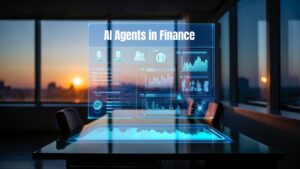- Discover how AI consulting services can help businesses improve sales forecasting precision, optimize resource allocation, and drive revenue growth
- Learn about real-world examples of companies leveraging AI-driven sales forecasting solutions to reduce costs, increase sales, and improve overall performance
- Explore best practices and considerations for implementing AI-driven sales forecasting, as well as emerging trends and innovations shaping the future of sales forecasting
In today’s fiercely competitive business arena, accurate sales forecasting is a critical factor in driving revenue growth, optimizing resource allocation, and making informed strategic decisions. However, traditional forecasting methods often rely on historical data, intuition, and manual processes, leading to inaccuracies and missed opportunities. This is where AI consulting services come into play, offering businesses cutting-edge solutions to enhance their sales forecasting precision and unlock new growth potential. In this article, we will explore how AI consulting services can help companies improve their sales forecasting accuracy and the benefits they can expect from embracing this technology.
The Challenges of Traditional Sales Forecasting
Limitations of Manual Processes and Historical Data
Traditional sales forecasting methods often face several challenges that limit their accuracy and effectiveness:
- Over-reliance on historical data: While historical sales data can provide valuable insights, it may not always be a reliable predictor of future trends, especially in rapidly changing markets or during unprecedented events.
- Lack of real-time insights: Manual forecasting processes often struggle to incorporate real-time data, such as changes in customer behavior, market conditions, or competitor activities, leading to outdated and inaccurate predictions.
- Biases and human error: Sales forecasts based on intuition or gut feeling are prone to biases and human error, which can lead to over- or under-estimating future sales performance.
- Limited scalability: As businesses grow and expand into new markets or product lines, manual forecasting processes can become increasingly complex and time-consuming, making it difficult to generate accurate and timely predictions.
By leveraging AI consulting services, businesses can overcome these limitations and unlock new levels of sales forecasting accuracy and efficiency.
The Power of AI in Sales Forecasting
How AI Consulting Services Can Enhance Accuracy
AI consulting services offer a range of advanced technologies and methodologies that can significantly improve sales forecasting accuracy:
- Machine Learning (ML) algorithms: ML algorithms can analyze vast amounts of historical sales data, identify patterns and correlations, and generate highly accurate predictions of future sales performance. These algorithms can continuously learn and adapt as new data becomes available, improving their accuracy over time.
- Predictive analytics: AI-powered predictive analytics tools can combine historical data with real-time insights from various sources, such as market trends, customer behavior, and social media sentiment, to generate more accurate and timely sales forecasts.
- Natural Language Processing (NLP): NLP techniques can analyze unstructured data, such as customer reviews, social media posts, and sales call transcripts, to extract valuable insights into customer sentiment, preferences, and intent, which can inform more accurate sales predictions.
- Automated data integration: AI consulting services can help businesses integrate data from multiple sources, such as CRM systems, marketing platforms, and financial databases, to create a comprehensive and unified view of their sales performance and customer behavior.
By leveraging these AI-driven technologies and methodologies, businesses can significantly enhance their sales forecasting accuracy, enabling them to make more informed decisions and drive better business outcomes.
Real-World Examples of AI-Driven Sales Forecasting Success
Case Studies and Success Stories
Several companies across various industries have already achieved remarkable results by implementing AI-driven sales forecasting solutions:
- Retail giant: A leading retail company partnered with an AI consulting service to develop an ML-powered sales forecasting system that analyzed historical sales data, weather patterns, and customer behavior to predict demand for specific products at individual store locations. The system helped the company reduce inventory costs by 30% and increase sales by 15% through optimized stock allocation and pricing strategies.
- B2B software provider: A global B2B software company engaged an AI consulting service to build a predictive sales forecasting model that combined historical sales data with real-time insights from marketing campaigns, customer interactions, and market trends. The model enabled the company to identify high-potential leads, prioritize sales efforts, and improve overall sales performance by 25%.
- Automotive manufacturer: An automotive manufacturer collaborated with an AI consulting service to develop an AI-powered sales forecasting solution that analyzed historical sales data, economic indicators, and consumer sentiment to predict demand for specific vehicle models and trim levels. The solution helped the manufacturer optimize production planning, reduce inventory costs, and improve sales margins by 20%.
These success stories demonstrate the tangible benefits that businesses can achieve by leveraging AI consulting services to enhance their sales forecasting accuracy and drive better business outcomes.
Implementing AI-Driven Sales Forecasting
Best Practices and Considerations
While AI-driven sales forecasting offers significant benefits, implementing these solutions requires careful planning and execution. Here are some best practices and considerations for businesses looking to leverage AI consulting services for sales forecasting:
- Define clear objectives: Identify the specific sales forecasting challenges you want to address and define clear objectives and key performance indicators (KPIs) for your AI-driven solution.
- Ensure data quality and integration: AI-driven sales forecasting relies on high-quality, integrated data from multiple sources. Work with your AI consulting service to assess your data landscape, identify gaps or inconsistencies, and develop a robust data management and integration strategy.
- Choose the right AI partner: Select an AI consulting service with deep expertise in sales forecasting, a proven track record of success, and a collaborative approach that aligns with your business goals and culture.
- Foster collaboration and communication: Ensure close collaboration and communication between your sales, marketing, and data science teams to align objectives, share insights, and drive continuous improvement.
- Monitor and refine continuously: Continuously monitor the performance of your AI-driven sales forecasting solution, gather feedback from stakeholders, and work with your AI consulting service to refine and optimize the system over time.
By following these best practices and considerations, businesses can maximize the value of their AI-driven sales forecasting initiatives and drive long-term success.
The Future of Sales Forecasting
Emerging Trends and Innovations
As AI technologies continue to advance, the future of sales forecasting looks increasingly promising. Some emerging trends and innovations that are set to shape the future of AI-driven sales forecasting include:
- Explainable AI: The development of explainable AI techniques will enable businesses to better understand and trust the predictions generated by their AI-driven sales forecasting models, improving transparency and accountability.
- Real-time forecasting: Advances in data processing and analytics will enable businesses to generate sales forecasts in real-time, allowing them to respond quickly to changing market conditions and customer behavior.
- Predictive customer insights: AI-powered sales forecasting solutions will increasingly incorporate predictive customer insights, such as churn risk, lifetime value, and cross-sell opportunities, enabling businesses to optimize their sales and marketing strategies.
- Augmented reality and virtual reality: The integration of AI with augmented reality (AR) and virtual reality (VR) technologies will enable businesses to create immersive, data-driven sales experiences that enhance customer engagement and drive better sales performance.
As these trends and innovations continue to evolve, businesses that stay at the forefront of AI-driven sales forecasting will be well-positioned to drive growth, improve customer satisfaction, and maintain a competitive edge in their markets.
Enhancing Sales Performance with AI
In today’s data-driven business landscape, accurate sales forecasting is no longer a luxury, but a necessity for companies looking to optimize their sales strategies, allocate resources effectively, and drive sustainable growth. By partnering with experienced AI consulting services, businesses can leverage cutting-edge technologies and methodologies to enhance their sales forecasting accuracy and unlock new levels of performance.
However, the journey to AI-driven sales forecasting success requires careful planning, collaboration, and continuous improvement. By defining clear objectives, ensuring data quality and integration, choosing the right AI partner, fostering collaboration and communication, and continuously monitoring and refining their solutions, businesses can maximize the value of their AI investments and drive long-term success.
As Peter Drucker’s famous quote goes, “The best way to predict the future is to create it.” By embracing the power of AI-driven sales forecasting, businesses can not only predict their future sales performance but also proactively shape it, driving growth, innovation, and success in an increasingly competitive and dynamic market.







